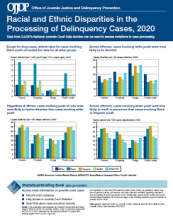Property crime
Reexamining the Effects of Probation and Parole on Narcotics Addiction and Property Crime
Heroin Crackdowns in Two Massachusetts Cities
Crime in Sweden - Causality, Control Effects and Economic Efficiency
Age and the Changing Criminal Involvement of Ordinary Property Offenders
Duration of Adult Criminal Careers - Final Report
New Directions in Research on Immigration and Crime
Immigration and Crime: Is the Relationship Nonlinear?
Understanding the Role of Street Network Configurations in the Placement of Illegitimately Operating Facilities
MANDATORY PRISON SENTENCES - THEIR PROJECTED EFFECTS ON CRIME AND PRISON POPULATIONS
PROPERTY CRIME AND ECONOMIC BEHAVIOR - SOME EMPIRICAL RESULTS
The Impact of a Youth-focused Problem-oriented Policing Initiative on Crime: Findings from a Randomized Controlled Trial in Three Cities
A Bayesian Analysis of a Cognitive-Behavioral Therapy Intervention for High-Risk People on Probation
A Place-Based Approach To Address Youth-Police Officer Interactions In Crime Hot Spots: A Randomized Controlled Trial
Self-Protection, Routine Activities, and Victimization: Studying Arab Americans in Metro-Detroit
Occurrence and Associative Value of Non-Identifiable Fingermarks
Offender Interviews: Implications for Intelligence-Led Policing
Uncertainty and heuristics in offender decision-making: Deviations from rational choice
Inclusive Research: Engaging People Closest to the Issue Makes for Better Science & Greater Impact; 2023 NIJ Research Conference Plenary
This panel will discuss what inclusive research is, how to conduct it, and what issues and challenges exist about engaging in it. “Inclusive research” has its history as a participatory research method designed to ensure people closest to the issue or problem under study are authentically engaged in the research process rather than simply being “research subjects.” While community-based participatory research has begun to take on greater prominence in the criminal justice realm, such efforts are largely confined to qualitative research inquiries.
See the YouTube Terms of Service and Google Privacy Policy





